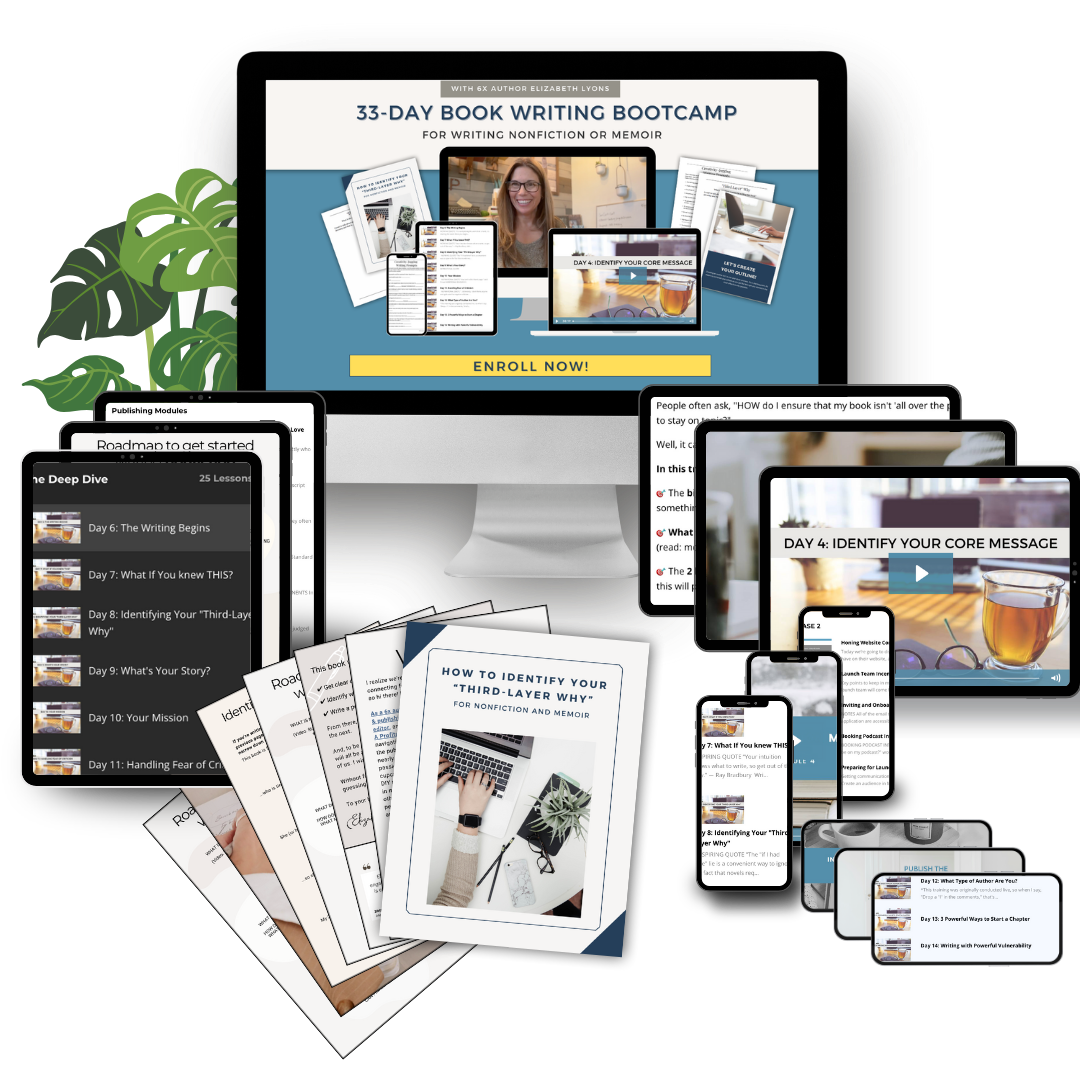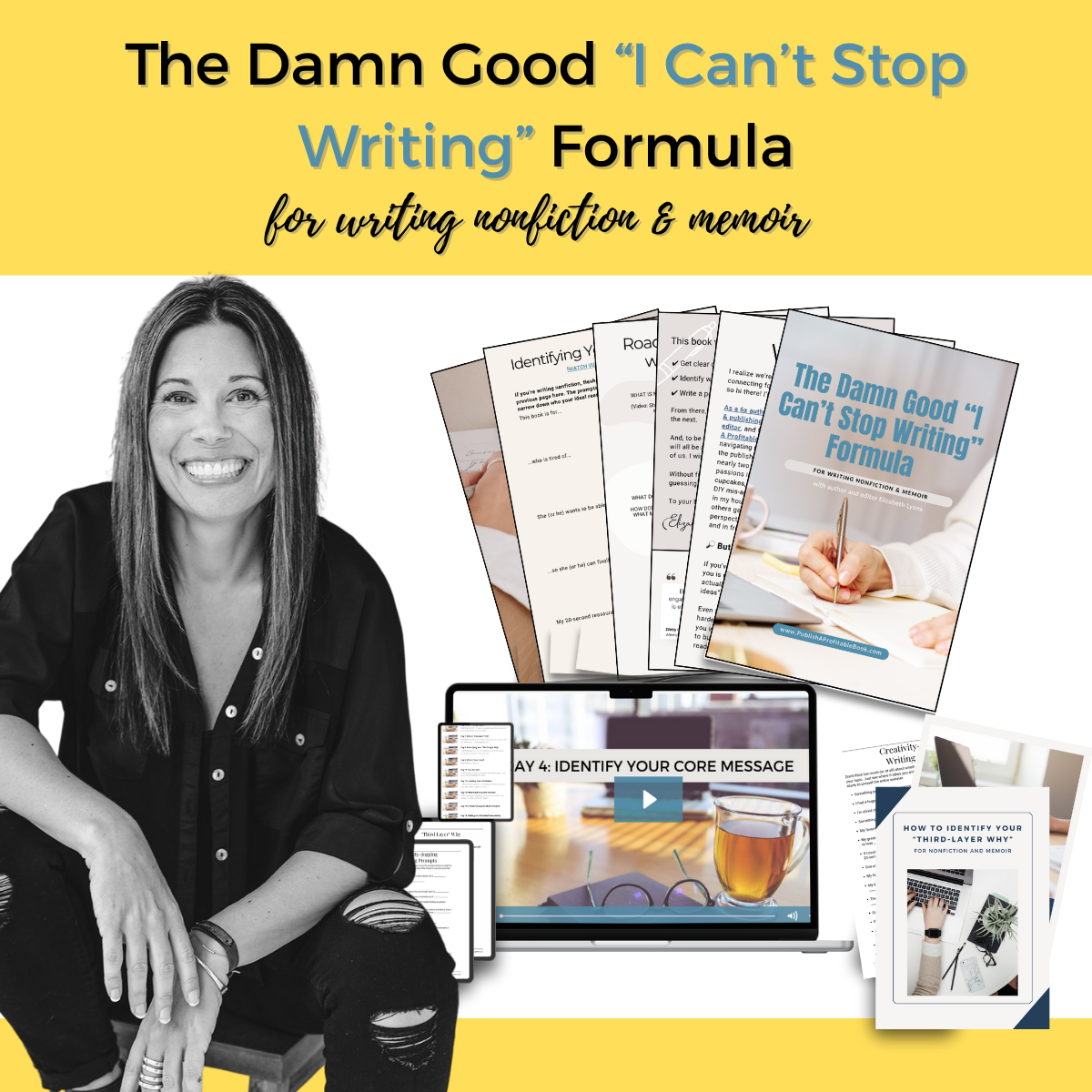Book Writing & Publishing
{The Blog}
Ep 135: Q&A: Kirkus Reviews, Writing with AI, and Bestseller Status

Ever feel like everyone has some secret book marketing hack? Most of those “shortcuts” are just expensive detours.
In this episode, I’m calling out three distractions that keep indie authors spinning their wheels. First up: Kirkus Reviews. Are they legit? Yes. Are they worth the price for most self-published authors? Maybe. But if you're hoping a $400 review is going to move thousands of copies, well, it probably won't.
Then we dive into the Amazon Bestseller badge obsession.
Finally, we'll talk about AI. As someone who edits A LOT of manuscripts, I can spot AI-generated content from a mile away. So can readers. In publishing, the long game truly is the shortcut.
🎉 NOW OPEN!
Amazon Ads for Indie Authors
Learn how to run Amazon ads that actually work—even if you’ve never touched an ad platform in your life.
👉 CLICK HERE TO JOIN >>
Wanting to get out of your own way so you can write the damn book already?
👉 CLICK HERE to write the first draft of your nonfictio...
Ep 134: Crafting Complex Narratives with Lauren Oliver
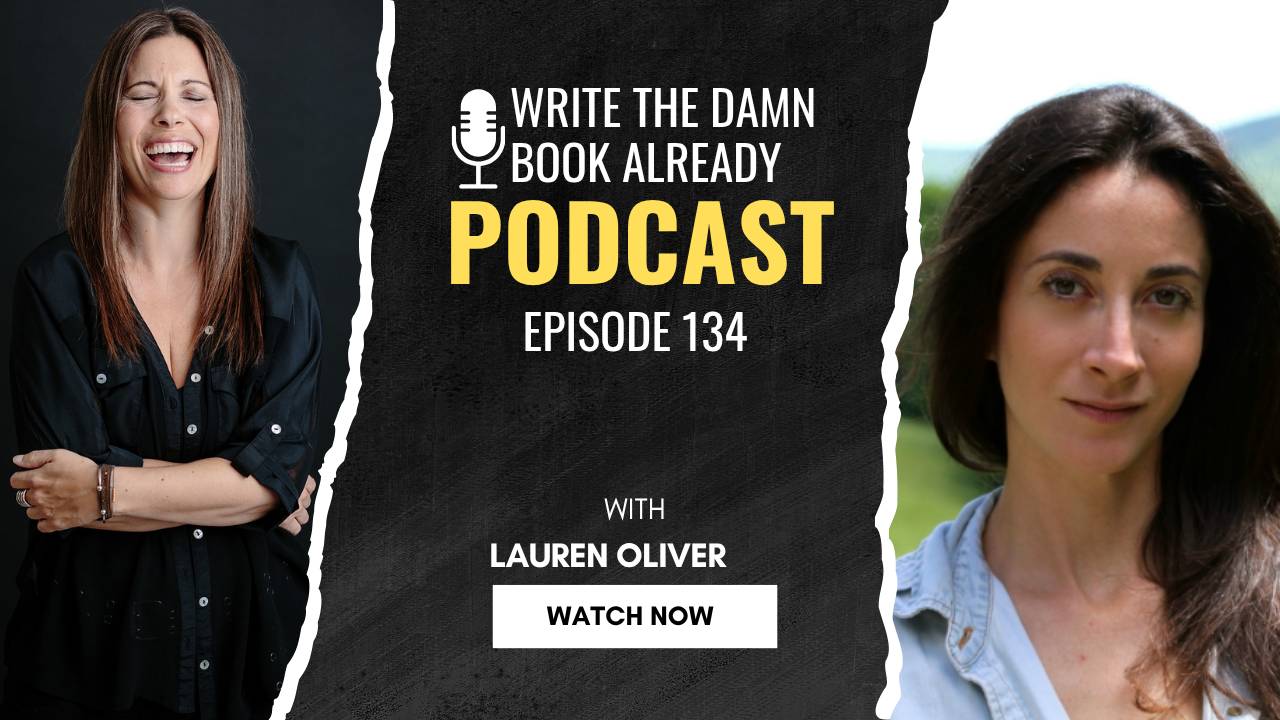
If you’re the kind of person who devours psychological thrillers but also wants to be emotionally sucker-punched (in the best way), Lauren Oliver’s What Happened to Lucy Vale needs to be on your radar.
In this episode, Lauren takes us behind the scenes of what might be her most structurally daring novel to date. Set in a small Indiana town with a possibly-haunted house at its core, Lucy Vale unspools two eerie mysteries—one set in the past, one unraveling in real time—using both traditional storytelling and a collective “we” voice (think The Virgin Suicides meets Reddit sleuth thread).
This book took years to write, and when you hear how the pieces click into place, you’ll understand why.
Through this book, she challenges us to ask: What if we’re not always the hero in someone else’s story?
We also dive into Lauren’s writing journey, which is less “neat staircase to the top” and more “rollercoaster meets overgrown hiking trail.” She talks honestly about the pressure to st...
Ep 133: Living Proof with Tiffany Graham Charkosky
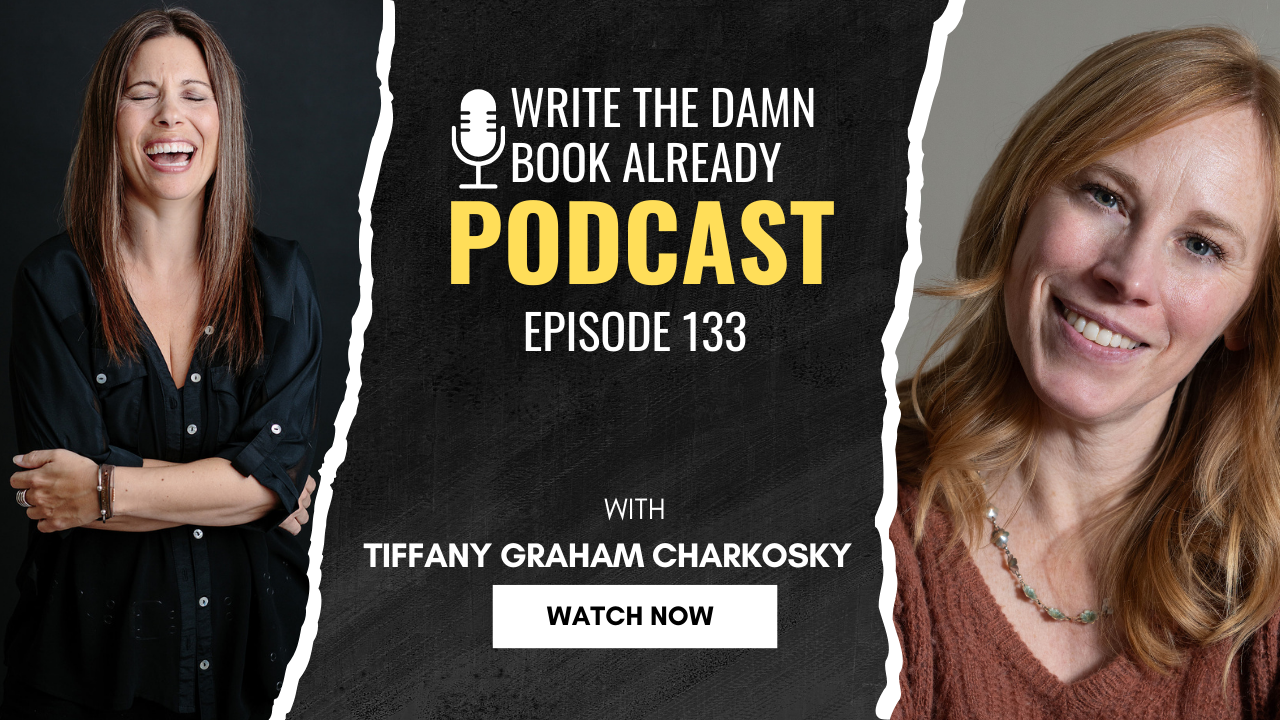
In this episode, I sit down with Tiffany Graham Charkosky to talk about her forthcoming memoir, Living Proof (October 21, Little A), a book written and shaped over years of writing and rewriting.
At just 11 years old, Tiffany lost her mother. For decades, she believed it was an unexplainable tragedy, until a DNA test unearthed information that changed everything. That discovery didn’t just reshape her understanding of her mother’s death; it also made her question what she might unknowingly pass on to her own children.
INSIDE THE EPISODE
- The emotional (and editorial) decision-making around what belongs in a book
- How long it took for her story to find its true shape (and why)
- The surprising speed of her publishing deal once it all came together
- How do we process loss as kids versus adults? And what happens when new information forces us to reinterpret our past?
Tiffany’s story is as deeply personal as it is universally relatable.
ABOUT TIFFANY
Tiffany Graham Char...
Ep 132: What Nobody Tells You About Making Your Book "Take Off"
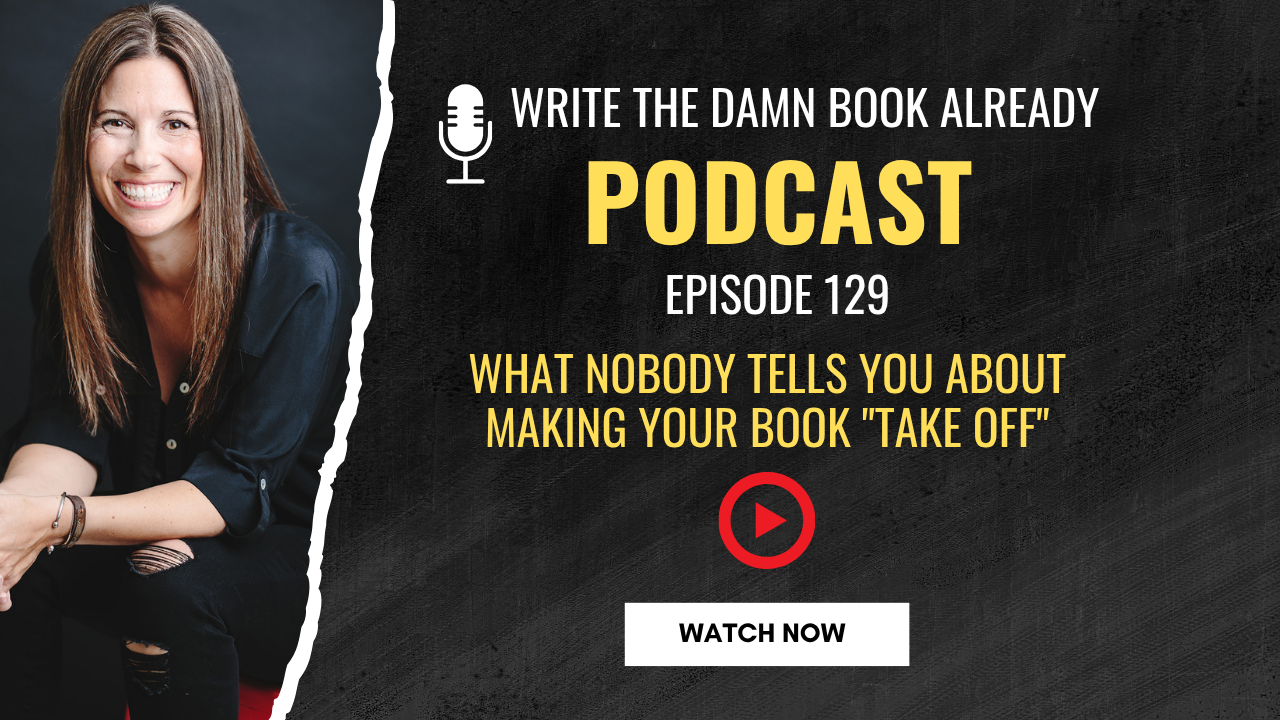
If you’ve been chasing the magical marketing strategy that will finally make your book “take off,” welcome to the club. In this episode, I’m addressing the question nearly every author eventually asks: What does it actually take to make a book successful?
Spoiler: there’s no guaranteed formula. Even authors with six-figure advances, NYT bestsellers, or celebrity blurbs still worry their latest book won’t sell.
So what are we really buying when we shell out thousands for a publicist? Often, it’s access and visibility, not actual sales. You can land your book in front of all the right people, and still... crickets. Why? Because readers are human. Think about how long you’ve let a book sit in your online cart before clicking “buy,” even if you really wanted to read it.
Success usually requires a mix of good writing, staying power, and yes, a little luck. But maybe it’s time we stop defining success only by sales numbers. What if it’s about writing something you’re proud of? Or c...
Ep 131: The Paper Palace and Beyond with Miranda Cowley Heller
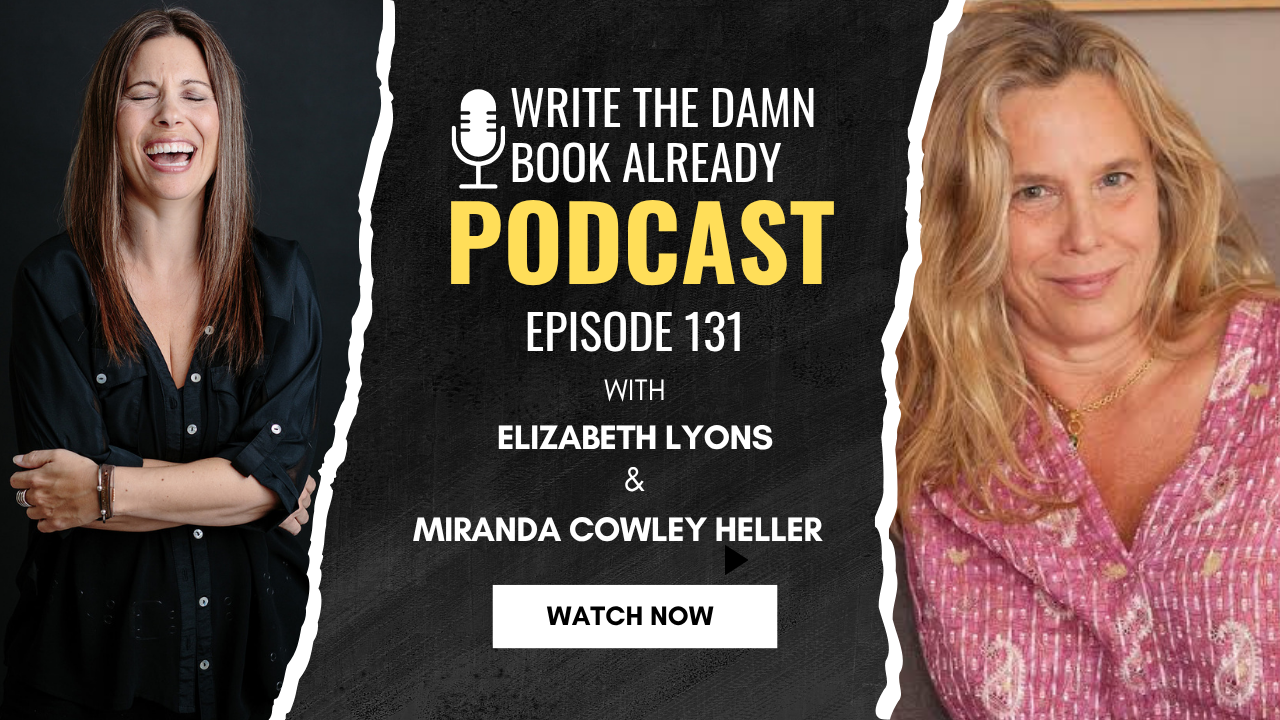
Miranda Cowley Heller's father was a book editor; her grandfather edited Jack Kerouac and was friends with Hemingway. That legacy, while inspiring, left her frozen when it came to pursuing her own writing.
Instead, she built a thriving career in publishing and TV, eventually heading up drama series at HBO. Then, in her 50s, she wrote the novel she’d been carrying around for years, The Paper Palace, which became a New York Times #1 bestseller and a Reese’s Book Club pick.
Now, she's returned to her first creative love—poetry—with a stunning new collection: The Deep Water Knows. “Poetry is almost like putting snapshots of your soul into the world,” she tells me.
In this episode, Miranda gets real about the myth of getting wiser with age, the vulnerability of releasing creative work into the world, and why your voice is never too late to matter.
ABOUT MIRANDA
Miranda Cowley Heller has worked as senior vice president and head of drama series at HBO, developing and overseeing ...
Ep 130: When Fiction Meets AI with Lori Gold

Author Lori Gold is pulling back the curtain on publishing, in both this conversation and her newest novel, Romantic Friction.
INSIDE THE EPISODE
⭐️ Yet another reason bestseller lists aren’t what you think (I didn't know this until I read her book!)
⭐️ A great tip for handing reviews without spiraling (or swearing off Goodreads forever)
⭐️ What AI is doing to authors' voices, and why it should concern all of us
⭐️ How writing happens even when you're not writing
⭐️ How Lori studies the bones of books she loves to make her own writing even stronger
CONNECT WITH LORI
Instagram: @lorigoldsteinbooks
 Grab a copy of Romantic Friction
Grab a copy of Romantic Friction
👉 CLICK HERE to write the first draft of your nonfiction or memoir written in 33 days!
...even if you don't have a cabin in the wilderness, 4 uninterrupted hours a day to write, or confidence that you're a "real" writer. No overwhelm, no confusion. Just simple, actionable steps.
Awesome Email Templates for Authors
From communicating with...
Ep 129: From LinkedIn to Penguin Random House with Gigi Robinson

What started as sharing her story online about living with chronic illness turned into a book deal with Penguin Random House. In this episode, Gigi Robinson shares how she leveraged consistency, relationships, and a clear vision to go from content creator to published author.
Here’s what we get into:
- Why she chose to write A Kid’s Book About Chronic Illness (and how it ended up getting picked up by Penguin/DK).
- The ridiculously simple promo strategy Gigi swears by: bring the book everywhere and make it part of the conversation.
- Why she went the children’s book route to make a heavy topic more digestible.
- Her take on promotion as storytelling, not selling.
- How she filters advice from all the "experts” while staying aligned with her bigger vision.
CONNECT WITH GIGI
Website: gigirobinson.com
Instagram: @itsgigirobinson
TikTok: @itsgigirobinson
👉 CLICK HERE to write the first draft of your nonfiction or memoir written in 33 days!
...even if you don't have a cabin in th...
Ep 128: Book Publicity with Emily Florence

This week, I’m joined by publicist Emily Florence, and we’re talking about how to set publicity goals before you start chasing them, why a Today Show appearance might not sell nearly as many books as you think, and how to make your marketing feel less like shouting into the void and more like having conversations that matter.
Here’s what we get into:
- Why knowing your goals (career author? credibility? visibility?) makes all the difference
- The surprising truth about big media hits (and what works better)
- Building an author platform that doesn’t rely on hacking the algorithm or pretending to be someone you’re not
- How to build a real-deal, supportive author community (no fake “collabs” required)
👉 CLICK HERE to get the first draft of your nonfiction or memoir written in 33 days!
...even if you don't have a cabin in the wilderness, 4 uninterrupted hours a day to write, or confidence that you're a "real" writer. No overwhelm, no confusion. Just simple, actionable steps.
Ep 127: On Writing...Everything, with Melissa de la Cruz

Bestselling author Melissa de la Cruz has published nearly 80 books (yes, 80), and in this episode, she shares what it really takes to build and sustain a long-term writing career. From surviving the shifting tides of publishing to protecting what gets you "in the mood" to write, she shares the kind of wisdom every author loves hearing.
INSIDE THE EPISODE:
🎉 Melissa's advice: Don’t quit your day job until the math says you can
🎉 Success is wonderful; it also resets with every new book
🎉 How to protect your creative hours (8am–1pm, in her case)
🎉 Books are logic puzzles, not lightning strikes (I love this analogy!)
🎉 If social media isn’t fun, don’t do it. Period. (Who's cheering?)
🎉 The final sprint before deadline is where the magic (and panic) often happen
Whether you're writing book 1 or book 71, this episode's packed with truths you'll be grateful for.
CONNECT WITH MELISSA
Website: melissa-delacruz.com
Instagram: @authormelissadelacruz
Faceboo...
Ep 126: Murder on the Page with N.L. Blandford

Thriller author N.L. Blandford isn't afraid to go dark—like, murder scene dark—and she absolutely loves it.
In this episode, she talks about writing gritty thrillers with complex villains you’ll root for and recoil from. Natasha never planned to become an author. She just wanted to cross “write a book” off her bucket list. Now she’s five books in, spanning multiple series, and shows no signs of slowing down.
We talk about:
- Why she never plots in advance (hint: her characters have strong opinions)
- Her secret weapon for book sales (spoiler: it’s not bookstores)
- Why she chose to publish “wide” to support Canadian platforms like Kobo
- What she’s loving and learning while writing a new series about a fictional mob family in Nova Scotia
- Why “show vs. tell” trips up so many new writers (and how she works through it)
CONNECT WITH N.L. BLANDFORD
Website: www.nlblandford.com
Instagram: @nlblandford
Facebook: www.facebook.com/nlblandford
Books: Bookshop.org, Amazon.com


